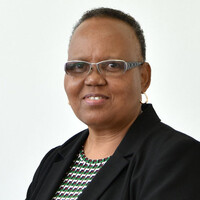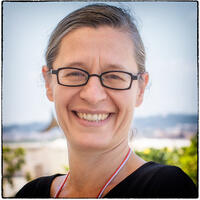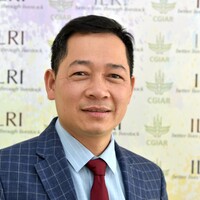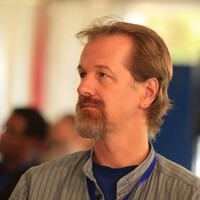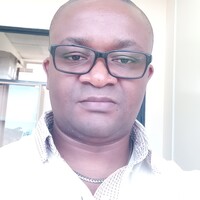
CGIAR Science Week
Program
Side events
The world's most vulnerable populations are increasingly burdened by heightened food insecurity, poverty, and social inequality, as a result of the water scarcity, malnutrition, biodiversity loss, and extreme weather events that are more prevalent in these regions.
At this critical juncture, CGIAR Science Week’s plenary program brings together global and regional leaders in research, policy, and development to discuss how we can harness and scale science and innovation and partner in more effective ways to provide food, nutrition and climate security for all.
08:30 - 10:00
Game On: Gamification for smarter innovation portfolio management in CGIAR's 2030 strategy
Conference Room 8
Session lead: Iddo Dror
This session is by invitation only. If you are interested in attending, please contact Nicoletta Buono (n.buono@cgiar.org).
14:30 - 16:00
Insight to Impact (I2I) champions workshop - Science to policy in practice
Conference Room 11
Session leads: Michael Victor and Cynthia Mugo
14:00 - 15:30
CGIAR research priorities for environmental health and biodiversity to advance the three Rio Conventions
Conference Room 1
Session lead: Cargelle Masso
08:00 - 10:00
14:30 - 16:00
Sustainable Animal and Aquatic Food Systems—how do private actors shape livestock and aquatic food value chains?
Conference Room 10
Session lead: James Rao
14:30 - 16:00
17:00 - 19:00
Jameel Observatory dryland food security and resilience community of practice networking event
Session lead: Peter Ballantyne
08:00 - 15:00
Positive deviance approach to resilience in practice: Camel production, gender and food security
Session lead: Birgit Habermann
08:30 - 10:00
AABNet luncheon symposia series: The vision for animal breeding in Africa
Conference Room 11
Session lead: Christian Keambou Tiambo
08:30 - 14:30
Managing drought and environmental shocks in the Horn of Africa: Capacity sharing and research opportunities in the drylands (Jameel Observatory)
Conference Room 10
10:30 - 12:00
10:30 - 12:00
One Health horizons: Catalyzing collaborations, innovations and policies for improving global health and food security
Conference Room 8
Session leads: Ekta Patel and Hung Nguyen-Viet
10:30 - 13:30
A new chapter for CAADP: The Kampala CAADP Declaration and CAADP strategy and action plan, 2026-2035
Conference Room 1
Session lead: Michael Victor
11:30 - 13:15
Drought early action for resilient drylands (part of drylands day)
Conference Room 10
Session lead: Peter Ballantyne
Partners: ILRI/Jameel Observatory, IWMI, and Alliance Biodiversity and CIAT
18:30 - 20:00
18:30 - 20:00
CGIAR flagship report launch and Devex science to action forum
Conference Room 4
Session leads: Michael Victor and Cynthia Mugo
10:30 - 14:30
Digital innovations for advancing agrifood systems research
Conference Room 3
Session lead: Ram Kiran Dhulipala
Field trips
Don’t miss this rare opportunity to see science in action. Put on your walking shoes and choose from full- or half-day visits providing a close-up view of research in both labs and fields.
10:00 - 12:00
The ILRI Nairobi campus tour
ILRI Nairobi Campus
The ILRI campus in Nairobi is a hub for agriculture, food systems and climate research with seven CGIAR centres based on campus as well as a number of other international organizations and programs.
On this tour you will visit the bioscience labs which include high-end bioscience facilities that support CGIAR's plant and animal research spanning vaccines and diagnostics, One Health, antimicrobial resistance, nutrition and mycotoxin assessment, tissue culture and plant transformation, genomics, and bioinformatics.
In addition, you will visit the Mazingira ('environment') Center, a unique resource in Africa that enables direct measurement of greenhouse gas emissions from animals. The center includes a laser spectroscopy and gas chromatography instruments.
The tour will last for 3 hours (expected time to and from UN venue is 4.5 hours). This is limited to 30 people.
Session lead: Shirley Tarawali
10:30 - 13:00
Walking tour: A behind-the-science look into climate-smart livestock research at the ILRI campus
ILRI Nairobi Campus
Join us at the ILRI Nairobi Campus to explore how research and partnerships are transforming livestock systems in developing countries to make them more climate-smart. Discover practical solutions that are boosting resilience, productivity, while addressing climate and environmental challenges.
During your visit, you’ll take a guided tour of the Mazingira Center, where some of Africa's most cutting-edge research tools and methods are being used to measure greenhouse gas emissions from livestock systems.
You’ll engage with ILRI scientists to learn how farmer-led innovations are driving adaptation, how livestock insurance is enhancing resilience for pastoralists, and how tailored climate and agricultural advisories are supporting decision-making for smallholder producers across the continent.
Additionally, learn about ILRI’s role in scaling these innovations and ensuring adaptation efforts benefit entire communities, including women, youth, and marginalized groups.
This is a unique opportunity to witness how science and collaboration are creating sustainable pathways for livestock production that support livelihoods, food security, and environmental stewardship in a changing climate.
Session leads: Anthony Whitbread and Mireille Ferrari
09:30 - 17:31
Kapiti Research Station and Wildlife Conservancy
ILRI Kapiti
Explore ILRI’s Kapiti Research Station and Wildlife Conservancy, about 80 minutes east of Nairobi.
The visit to Kapiti will give you an opportunity to see ongoing research in animal health and genetics, feeds and forages, and environmental management and give you an insight on the day-to-day operations of a livestock ranch and its important role in wildlife conservation.
You will enjoy our beautiful livestock (cattle, camels, sheep, and goats) and various wildlife species, including herbivores, carnivores (if lucky), and an impressive birdlife.








